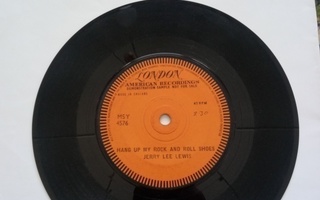Oscar Wilde: The Happy Prince And Other Stories (Hardcover)
Kuvaus
Kirjan kansissa hieman kulumaa (katso kuvat), muuten siistissä kunnossa.
Yhdistelen huutoja samaan pakettiin postikulujen vähentämiseksi.
Reprint / Citadel Press / 1947
The Happy Prince is a story by Oscar Wilde. It is about the story of a statue, the Happy Prince, covered with gold and many fine jewels. It sits overlooking the city. One day a swallow bird seeks shelter under the statue and discovers the prince not happy, but sad.
The bird becomes friendly with the prince and tries to make him happy by assisting him in his desire to ease the suffering of others. It plucks out the ruby, the sapphire, and other fine jewels from the statue and delivers them to those who are poor and needy.
The story of the Happy Prince dwells upon the themes like social injustice, the redemptive power of love, and the loss of innocence. In this story, we come across a statue, who, at one time, was a real Prince. When the Prince was alive, he was a happy person. He lived in the palace and did not know about human suffering. His life was full of joys. Upon his death, his statue was built at the top of a tall column in the city.
The statue was covered all over with thin leaves of fine gold, for eyes he had two bright sapphires, and a large red ruby glowed on his sword-hilt. The statue of the Happy Prince looked beautiful and everyone in the city loved to see their Prince. Since he was placed high above the city, on a tall column, the Prince was able to witness all the sorrows and sufferings which the common people faced in their daily life.
Oscar Fingall O'Flahertie Wills Wilde was born in Dublin in 1854. He was educated at Trinity College, Dublin and Magdalen College, Oxford where, a disciple of Pater, he founded an aesthetic cult. In 1884 he married Constance Lloyd, and his two sons were born in 1885 and 1886.
His novel, The Picture of Dorian Gray (1891), and social comedies Lady Windermere's Fan (1892), A Woman of No Importance (1893), An Ideal Husband (1895), and The Importance of Being Earnest (1895), established his reputation. In 1895, following his libel action against the Marquess of Queesberry, Wilde was sentenced to two years' imprisonment for homosexual conduct, as a result of which he wrote The Ballad of Reading Gaol (1898), and his confessional letter De Profundis (1905). On his release from prison in 1897 he lived in obscurity in Europe, and died in Paris in 1900.
Myyjä
Osta heti
Lisätiedot
Maksaminen ja toimitus
Kysymykset
Kirjaudu sisään tai luo uusi tunnus.

